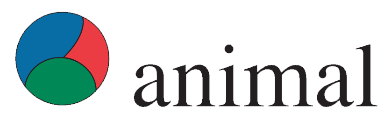Document type: news from Eurogroup for animals
Author: Eurogroup for Animals
Preview: Industrial insect farming is starting to soar in Europe. Touted as a 'sustainable' form of agriculture - with insect facilities seeming to have a much smaller environmental footprint than other livestock systems - 71 companies alone are now rearing insects as food for people, with many more using them to produce animal feed, pharmaceuticals, and dietary supplements.
The industry is moving fast. [...] Therefore, to foster an understanding of this area among policymakers and industry leaders, we at Eurogroup for Animals have been researching the evolution of insect farming in Europe, to paint an accurate picture of the industry's current state and how it's projected to develop. [...] Now a year into this project, see below for a breakdown of some of our key findings and concerns so far.
Insect farming and the welfare of insects
With policymakers behind the curve (the Commission has even admitted to having an "overwhelming lack of knowledge" regarding all aspects of this sector), industry leaders are calling the shots when it comes to insect farming. In turn, their suggestions for the growth of the field are underpinned by industry needs, namely, productivity and cost-efficiency.
As a result, the welfare of insects in these farming systems has been neglected in decisions made about the sector so far, with little acknowledgement of their behavioural needs or even their sentience. To properly inform the debate surrounding insect farming and to allow the EU to make sound policy decisions, the welfare of insects must therefore be thoroughly investigated. Just like any other sentient being, insects deserve to lead happy, fulfilled lives, where all their natural needs are met.
Insect farming and the welfare of other farmed animals
Arguably the main driver for the growth of industrial insect farming is to produce feed for animals in intensive livestock systems. Our research shows that around 900 million more euros have been invested into feed-producing insect facilities over those producing food for people. [...]The trajectory of insect farming is therefore a worrying one, as it's set to support large-scale farming systems that are at the source of suffering for millions of other animals each year.
Insect farming and sustainable food systems
The fact that the majority of insects are being farmed for feed also has implications for the future of our food systems, as the 'success' of insect farming appears to rely on an increased demand for (and consumption of) animals. [...]Ultimately, the expansion of insect farming must not be allowed to threaten the development of Europe's sustainable food systems, which are connected to animal welfare, food security, public health, the climate, and many more critical areas.
Further reading : Our NEW paper: The future of insect farming: where's the catch?





